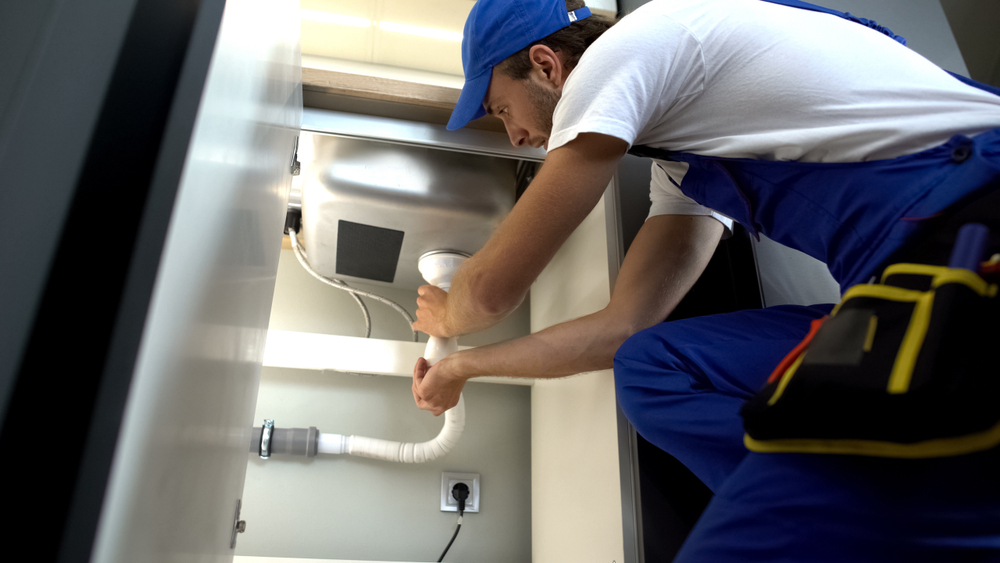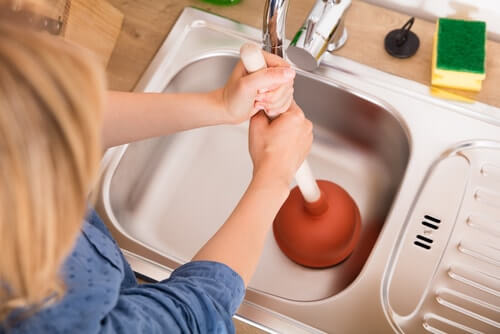Quick Fixes for Urgent Plumbing Issues: What to Do Until Support Arrives
Quick Fixes for Urgent Plumbing Issues: What to Do Until Support Arrives
Blog Article
Almost everyone may have their unique opinion on the subject of Plumbing Emergencies: Tips on What To Do Before.

Plumbing emergencies can strike at any time, causing stress and potential damages to your home. Whether it's a ruptured pipe, a blocked drainpipe, or a dripping tap, understanding how to manage the scenario till an expert plumbing gets here can conserve you from additional complications. This post offers essential emergency pipes ideas to help you minimize damage and regain control throughout a plumbing situation.
Turn Off the Water
The initial step in any kind of plumbing emergency situation is to turn off the water supply. For local issues, such as a leaking tap or toilet, switch off the shutoff near the component. In the case of a significant leak or ruptured pipe, locate your home's major water shut-off valve and transform it off promptly. Knowing the place of these shutoffs in advance can conserve important time during an emergency situation.
Address Little Leakages with Temporary Repairs
Little leaks can swiftly become substantial issues if left uncontrolled. Utilize these temporary repairs until expert help shows up:
While these solutions aren't permanent, they can help lessen water loss and damage.
Unclog Drains Securely
A clogged drainpipe can be an irritating and messy problem. Below's how to tackle it:
If these methods do not function, stay clear of making use of too much pressure, as it may intensify the blockage.
Manage Overflowing Toilets
An overflowing commode can create instant turmoil. Right here's what you ought to do:
Turn off Your Water Heater
In certain emergency situations, such as a ruptured pipeline, it's a good idea to shut off your water heater. This protects against getting too hot or damages to the system when water stops moving. Switch off the power supply to the hot water heater (electric or gas) and let it cool to stay clear of prospective risks.
Temporarily Quit a Ruptured Pipe
A ruptured pipeline can result in significant water damages in mins. To reduce the issue:
Call a professional plumbing professional promptly to deal with the trouble completely.
Deal With Frozen Piping Very Carefully
In colder environments, frozen pipelines are a typical emergency. If you presume a frozen pipeline:
Avoid Additional Damages
Taking quick action to reduce damages can save you money and time in the long run. Right here's how:
. Have an Emergency Pipes Kit
Prepare a fundamental pipes emergency situation kit to manage small issues properly. Your kit must consist of:
Having these devices on hand can make a considerable difference in your capability to take care of emergencies.
Know When to Call a Professional.
While quick fixes can assist momentarily, particular plumbing concerns require instant expert interest. Call a plumbing if:.
Immediately calling a specialist makes sure the problem is fixed properly and avoids further issues.
Final thought.
Pipes emergency situations can be overwhelming, but with the right knowledge and tools, you can manage the situation effectively until help arrives. By turning off the water supply, addressing tiny leakages, and making use of momentary repairs, you can lessen damage and keep your home safe. Remember, these tips are temporary remedies; constantly get in touch with an accredited plumbing to deal with the root cause of the trouble. Prep work and fast thinking are your best allies in any pipes emergency situation.
8 Helpful Tips for Managing Plumbing Emergencies at Home
If your plumbing system hasn’t failed once, wait for it because almost everyone has a story to tell. Sometimes, it could be simple emergencies such as a leaking pipe, a blocked cistern, or even a big burst pipe. In situations like this, you need to have some handy tips to save you some money and from possible damages.
Take care of minor issues early.
Sometimes, you could have avoided an emergency by taking proactive measures while it was still early. Some major plumbing emergencies can be a result of an ignored minor issue. We recommend that you have items like plumbing tapes and other related items. A plumbing tape can allow you to manage minor leaks before the plumber arrives.
Cut off the water supply.
This tip is essential in almost any type of leakage problem. For problems like minor leakages in the toilet or kitchen, turn off the supply that takes water to the affected pipes. If the leakage is a major pipe, you must shut off the supply valve to the entire building. This will help you avoid flooding your home and neighbors if you share a flat.
Know your plumbing system
Folks typically move into a new apartment without understanding the water supply around the building. This can prove disastrous if a water emergency arises and the plumber is far away. The previous tip will prove useless if you don’t practice this one. More importantly, know where your water shut-off valve is located – you’ll need that knowledge to prevent potential home floods.
Have some common handy tools
There are lots of plumbing emergencies that you can handle without hiring a plumber. That’s why you must keep some tools available always. Some tools that you can use to fix simple plumbing emergencies easily include plumbing tapes, screwdrivers, thread seal tapes, plungers, pliers, tape measures, and rubber gloves.
Insulate your pipes from cold
You’ll save yourself from many plumbing expenses if you protect your water pipes from the cold. This is because of the harmful effects that cold weather can have on your pipes. During winter, your pipes can burst from being overly expected to freezing temperatures. So, make sure insulators are there to keep the pipes working correctly.
Avoid practices that will clog your toilet.
Many people indulge in practices that can damage the plumbing system of the entire building. One of these is when they use their toilet to dispose-off garbage. They flush all kinds of things, such as paper towels, bandages, hairs, female sanitary products, etc., down the toilet. This will block your toilet in the long run, incurring unnecessary expenditures. Dump such waste in the trash instead.
Check your dials regularly.
Sometimes, there could be leakages in your home without noticing them in time. So, constantly monitor your water meter dial. If the dial is reading when there is nobody using water, this is an indicator that there is leaking. Check for leaks immediately. Call a plumber as soon as possible if you can’t find any.
https://www.constructionplacements.com/8-helpful-tips-for-managing-plumbing-emergencies-at-home/

I recently found that piece on while doing research the web. Sharing is good. You won't know, you might be doing someone a favor. Many thanks for your time. Kindly pay a visit to our blog back soon.
Quote & Schedule Report this page